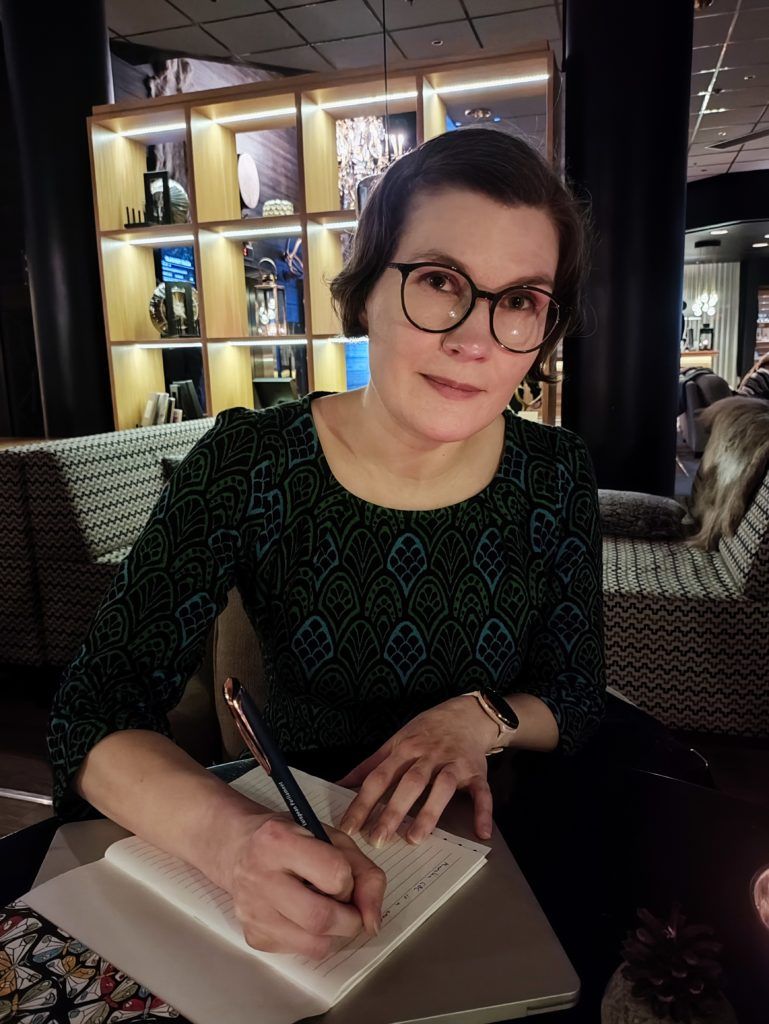Voices from the field
Henna-Mari Laurila
"Our programme spread a new project attitude"
This week a major milestone has been reached by the ENI CBC community, with the guidelines for programme closure advancing to their final approval stage after a comprehensive consultation launched by DG REGIO. In this context, the deadline for finalization of ENI CBC project activities is quickly approaching; by early September, already 38% of the projects had been officially closed, with this percentage peaking at 85% in some programmes.
The time is ripe to start looking at what ENI CBC programmes have achieved and which legacy will be inherited from them, be it by their direct Interreg NEXT successors or by other Interreg programmes. In this edition of the bulletin, TESIM starts a series of articles which will dwell on this legacy, collecting the testimony of frontline ENI CBC actors and taking stock of project achievements in some of the most relevant fields of implementation. Our first stop is the Karelia CBC Programme.
THE LEGACY OF ENI CBC
How much has the disruption of the cooperation with Russia unsettled the objectives of your programme?
It is still difficult to say, but if the general objective of the programme was to make these regions more attractive for the people to live in, and for the enterprises to settle and work and generate wellbeing, I believe we brought our bricks to the puzzle, and succeeded, at least for what concern the territories on the European side.
Do you think that the effects caused by the implementation disruption were minimized by the changes in the legal framework introduced by the European Commission?
Absolutely. In our programme only two projects decided to stop working because they saw no reason to keep going without the cross-border cooperation aspects. All the others were willing to continue, and it was important to be able to introduce the necessary changes. Most activities have carried on, it would have been a shame to cancel them just because we can’t cooperate with Russia anymore. Also there have been new initiatives, sometimes Ukrainian refugees in Finland were targeted, sometimes projects were able to reposition themselves, introducing new ideas. All this would not have been possible without the flexibility allowed by the European Commission.
In the next programming cycle, ENI CBC programmes will not be implemented in this area. Do you see any actor that could replace ENI CBC in terms of support for these regions?
Eastern Finland is particularly bad affected by what has happened, and it’s understandable: they are geographically much closer to Russia than to Sweden, the cooperation actors will have to turn direction. But we have organized capitalization events with the participation of representatives of Interreg programmes like the Northern Periphery & Arctic and Aurora. We have also invited some of their projects to make presentations, to offer to our ENI CBC partners the concrete opportunity to meet and network with those who in the future might be their project partners, or their Managing Authorities. So yes, Europe can offer alternatives across internal European borders. But also, from a national point of view, I think about the regional councils, who could pick up the work, the ideas, the capacities we as a programme were able to disseminate among so many organisations … I am hopeful for the cooperation in this region.
Is there any legacy that you can think of, any inheritance of the ENI CBC programmes left for the future?
We already know that project results have been applied to some EU funded initiatives. So hopefully this will be the case for many others: results of ENI CBC will live on, in a next generation of projects. And it’s not only about results, I am also thinking about the spreading of a specific attitude, the way to implement activities, to try new endeavors, to always look for improvements. If we have succeeded in passing this on, if that is now the normal practice of many organizations, we can consider it the good legacy of the Karelia CBC Programme.




















